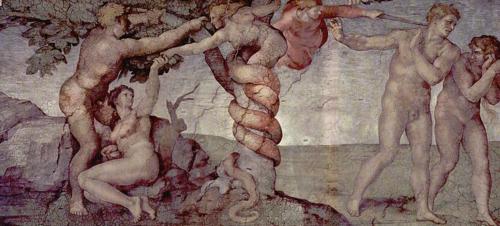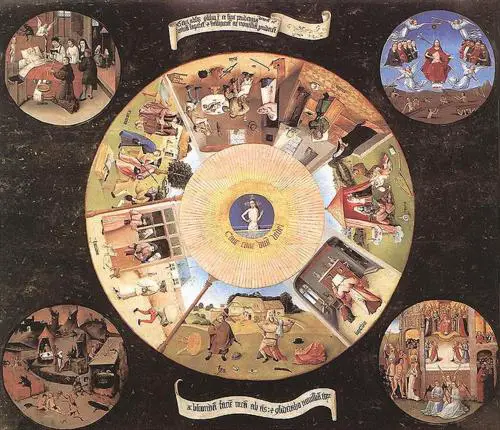I was only actually going to write two posts on Mark Smeaton, but Cynthia came up with a rather interesting theory yesterday as to why Mark did not retract his confession and why he said “Masters, I pray you all pray for me, for I have deserved the death” on the scaffold before he was executed.

Why on earth would Mark not take the opportunity to put things right before meeting his maker? We can all understand Mark Smeaton confessing to adultery with Anne Boleyn while under torture, whether physical or psychological, but we are all quite rightly bewildered by his words before death.
There are various theories as to why Mark did not retract his confession and why he said these words:-
- Fear – As I said previously, Alison Weir wonders if Mark believed that his execution could be changed, even at the last minute, from beheading to hanging, drawing and quartering if he did not comply or if he caused trouble by speaking out.
- Guilt – By this time, Mark had dug himself a hole and there was no way out of it for him or anybody else. His friends had already been executed and Anne had already been convicted and I expect that his words regarding deserving death were to do with his guilt over what he had done, by confessing.
- He recognised himself as a sinner – Christians believe that we are all sinners and so deserve death, and separation from God, but that Jesus Christ came to save us and reconcile us with God, so perhaps Mark’s words were just him simply recognising himself as a sinner who deserved death. No hidden meanings, just him confessing his sins.
- He was guilty – Some believe that these words actually show that there may have been something to the allegations regarding an affair between the Queen and Mark. I don’t buy into that idea myself – Anne was far too intelligent to risk her marriage and crown for a lowly musician.
Now here’s the interesting theory put forward by Cynthia, who says that she doesn’t necessarily give it any credence but thought it worthy of debate and I agree. This theory regarding Mark’s words and actions is the idea of “scrupulosity” – let me explain.
Was Mark Smeaton Scrupulous?
Cynthia directed me to a Catholic website, Catholic Spiritual Direction, with a page about scrupulosity and how to conquer it. On that site, being scrupulous is defined as:
“Our conscience is overly exacting and overly critical of ourselves and we see sins where there are no sins, or mortal sins where there are only venials sins, and this leads to an inner torment of feeling guilty when there is no good reason. It can include tormenting ourselves through worry or fear that we are not in God’s grace or not good enough or are in the state of sin or something similar, so it robs us of the peace Jesus came to give us. So being scrupulous is not good but something we want to get over.”
and also says:
“A scrupulous person is often not committing sins but just worries through fear that every “bad” thought or feeling that comes into them is somehow a sin even though they didn’t want them.”
So, could it be that Mark Smeaton was scrupulous? Did he see sin where there was none? Did he feel guilt at just being attracted to Anne?
In the Bible, we have the following words:
“But I tell you that anyone who looks at a woman lustfully has already committed adultery with her in his heart.” Matthew 5:28
These words are tackling the idea of lustful thoughts and advising Christians to endeavour to control their thoughts and not think of sinful things. While thinking lustful thoughts is a far cry from committing adultery, these thoughts, if not tackled, could perhaps lead to the person becoming infatuated and going on to commit adultery. We all know where thoughts can lead! Lust is also one of the Seven Deadly Sins, one of the worst vices that a man can have. So, perhaps Mark was thinking of this verse and of the sin of lust, perhaps he believed that because he was in love with Anne and attracted to her that he was guilty of adultery with her.

In her comment on yesterday’s post, Cynthia said:
“It occurs to me that if Smeaton had been overly scrupulous in his religion, then he might have naturally felt pride in Anne’s attention to him quickly followed by a sense of unworthiness at his rise within the Tudor court. Needless to say, had he had a moment’s fleeting amorous thought about the Queen, his benefactress, the anguish would have been enormous to someone disposed to be hyper guilt-ridden.
Scrupulous people confess even to things they haven’t even done and tend to over-compensate for their inferiority through confession–I know Smeaton’s “confession” to Cromwell was in a civil capacity, but if Smeaton was as my theory supposes, Smeaton might have taken the same view of any sort of confession.”
Thank you so much to Cynthia for posing this question and provoking this debate. I do think that this theory may have some merit. It is very easy to analyse ourselves, to be too hard on ourselves for the thoughts we have and to beat ourselves up over things that just aren’t our fault, so it is easy to imagine how a person may have this psychological weakness, this sense of unworthiness and therefore be ridden with guilt over the smallest thought, word or deed.
What do you think? Was Mark scrupulous? Did he have a case of “Catholic guilt”?
Please comment as to why you think Mark confessed or why he didn’t retract his confession, and remember to read my two previous posts on Mark – you didn’t know there was so much to write about little old Mark Smeaton did you?!